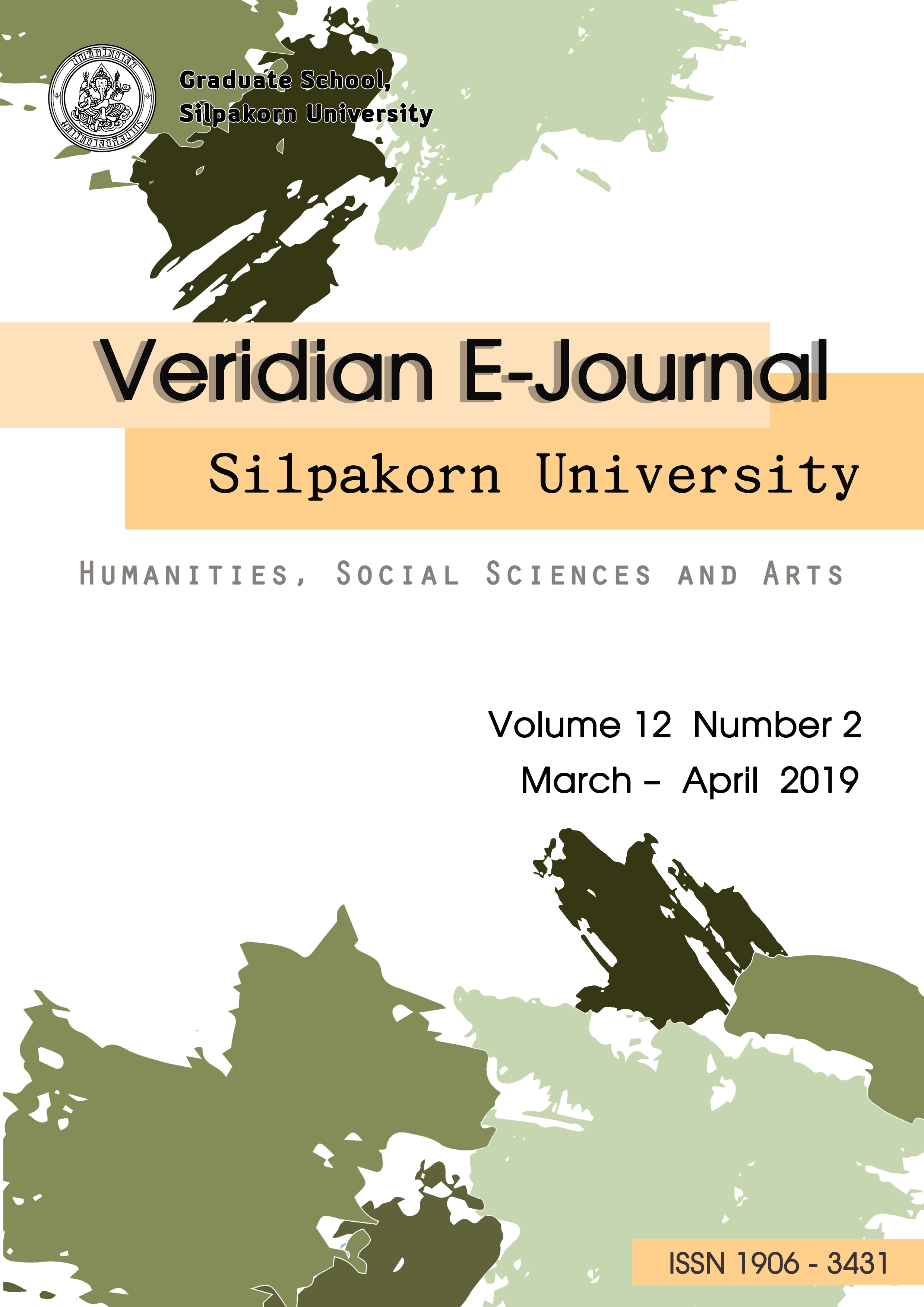ปัจจัยที่ส่งผลต่อการเลือกใช้นโยบายการบัญชีในการวัดมูลค่าอสังหาริมทรัพย์เพื่อ การลงทุนของบริษัทในตลาดหลักทรัพย์แห่งประเทศไทย (Factors affecting the selection of accounting policies to measure the value of investment property of companies in the Stock Exchange of Thailand.)
Main Article Content
Abstract
งานวิจัยนี้ศึกษาถึงปัจจัยที่ส่งผลต่อการเลือกใช้นโยบายการบัญชีในการวัดมูลค่าอสังหาริมทรัพย์เพื่อการลงทุนของบริษัทในตลาดหลักทรัพย์แห่งประเทศไทย ที่ส่งผลกระทบต่อการตกแต่งกำไรผ่านรายการคงค้างโดยใช้ดุลยพินิจของผู้บริหาร โดยทั้งนี้ การเลือกใช้นโยบายการบัญชีดังกล่าวเป็นไปตามมาตรฐานการบัญชีฉบับที่ 40 เรื่อง อสังหาริมทรัพย์เพื่อการลงทุน โดยกลุ่มตัวอย่างที่ใช้ในการศึกษา ได้แก่ บริษัทฯ ที่จดทะเบียนในตลาดหลักทรัพย์แห่งประเทศไทย ทั้งสิ้น 239 บริษัทที่เปิดเผยเกี่ยวกับอสังหาริมทรัพย์เพื่อการลงทุนในงบการเงินประจำปี 2559
โดยใช้วิธีการวิเคราะห์ความถดถอยโลจิสติค (Logistic Regression Analysis) และ t- test ในการทดสอบ ผลการวิจัยพบว่า อัตราส่วนหนี้สินต่อส่วนของเจ้าของ ส่งผลต่อการเลือกใช้นโยบายการบัญชีการวัดมูลค่าด้วยวิธีมูลค่ายุติธรรมอย่างมีนัยสำคัญที่ระดับ 0.5 นอกจากนี้ จากการทดสอบ t-test ยังพบว่าบริษัทที่เลือกใช้นโยบายการบัญชีการวัดมูลค่าอสังหาริมทรัพย์เพื่อการลงทุนด้วยวิธีราคาทุน และวิธีมูลค่ายุติธรรม มีการตกแต่งตัวเลขทางการบัญชีที่ไม่แตกต่างกัน ณ ระดับมีนัยสำคัญที่ 0.05
This research aimed to study factors affecting the selection of accounting policies to measure the value of investment property of companies in the Stock Exchange of Thailand which related to earning management through discretionary accrual items. In this case, the selection of these accounting policies were according to Thai Accounting Standard No. 40 : Investment Property. The sample size of this study was 239 listed firms in the Stock Exchange of Thailand who disclosed about investment property in their annual reports in 2016. Logistic regression analysis and t-test were employed to analyze data. The research revealed the debt to equity ratio was related to the selection of accounting policies to measure the value of investment property at 0.05 significant level. Furthermore, the result from t-test found that cost model and fair value model for measuring investment property were not significantly different in earnings management at 0.05 significant level.
